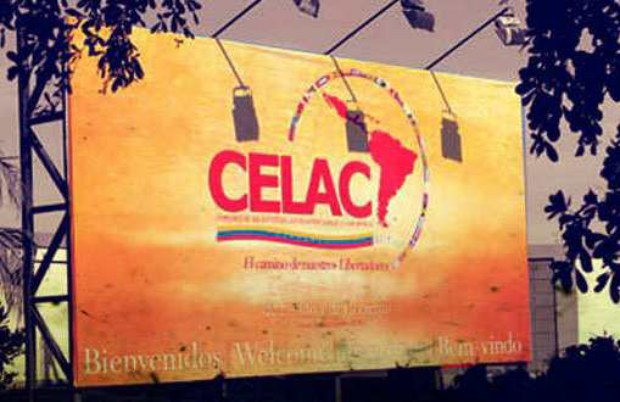Ecuadorian Vice-President Xavier Lasso said in Quito that
his country has “nearly everything ready” to host the 4th Summit of the Community of Latin American and Caribbean States, CELAC, later this month
In statements to the Ecuadorinmediato.com website, the foreign minister said that 22 out of all CELAC 33 leaders have thus far confirmed attendance, though he expects to receive confirmation by some others.
The Summit, whose high-level session is to take place January 27, will be hosted by the building of the Union of South American Nations, located in a tourist resort some 15 kilometers North of the capital Quito.
Along with its traditional political declaration, the summit will also adopt some 20 documents on specific issues, the official announced.
He said that as part of the agenda Argentina will propose a declaration claiming sovereignty over the Malvinas or Falkland Islands, while Cuba will demand the return of the territory illegally occupied by the US naval base in Guantanamo.
Ecuador, current pro-tempore president of the bloc, will pass its chair to the Dominican Republic, which according to the foreign minister will focus on issues, such as technology transfer, connectivity and actions to cushion the impact by climate
change.
As to Ecuador’s role heading CELAC, the minister said that they worked hard to further consolidate the bloc. He said the region has to keep with its efforts to lower high poverty levels, since this is not the poorest region of the world, but the area with the biggest inequalities on the planet.
In the current regional context, Cuban President Raul Castro said at the closing session of the Cuban Parliament in December that it is crucial to defend the unity of the Community of Latin American and Caribbean States as a legitimate, necessary, unitary and diverse mechanism for political dialog and integration, which made it possible to get all 33 heads of state of the region together.
Founded in 2010, the CELAC bloc groups all countries in The Americas, with the exception of the United States and Canada.
 Escambray ENGLISH EDITION
Escambray ENGLISH EDITION






Escambray reserves the right to publish comments.